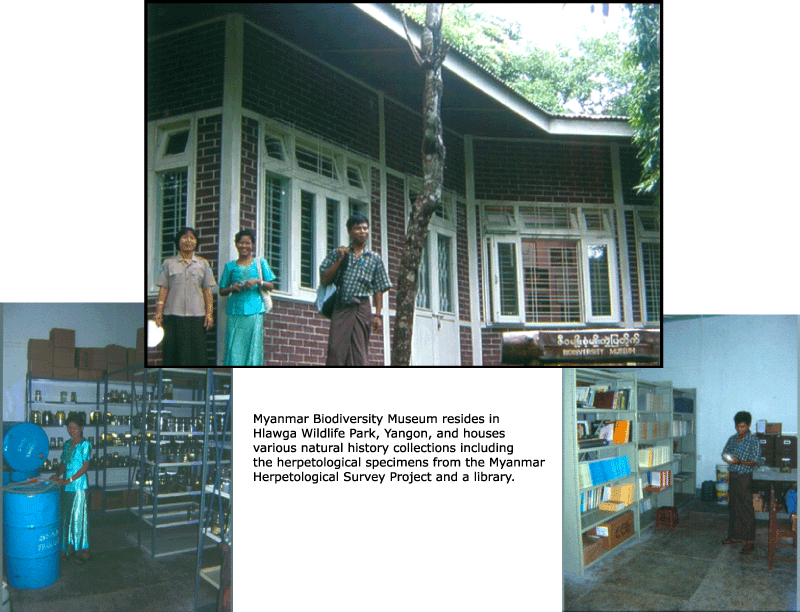Promoting Research, Education, and Conservation in Myanmar
Myanmar Biodiversity Museum
The newly established Myanmar Biodiversity Museum (MBM) is designed
as a research center by providing a repository of specimens for a variety
of taxonomic groups. In-country researchers now have the use of specimens
deposited here. Establishment of a natural history museum collection helps
foster interest in organismal biology. The herpetological section of the
MBM houses more than 3,000 specimens of amphibians and reptiles. In 2003,
California Academy of Sciences (CAS) provided the museum with jars, shelving,
and curatorial supplies as well as computers to begin the task of managing
the collection. The Smithsonian Institute has sent 25 large specimen storage
cases specifically designed to house specimens of birds and mammals.
In addition to the curatorial supplies, CAS has provided the start of a natural history library with over 300 books and journals covering various disciplines in the biological sciences. (If you are interested in donating science books to the MBM library, please contact Guin Wogan)
More information about the building of the new museum is detailed in a previous "Science Now" exhibit at CAS.
 |
||
Yangon University
The California Academy of Sciences, the Smithsonian Institution, and Yangon
University have initiated a partnership to promote biological studies
at the university and to enhance graduate-level training. US counterparts
will be giving lectures, assist with project design, and collaborate on
scientific papers with Yangon University lecturers and students. We are
also encouraging Yangon University participants to attend lectures and
workshops led by US researchers for the Forest Department staff.
Other Activities
More outreach to the citizens of Myanmar is planned in hopes of fostering
interest and pride in their unique herpetofauna. CAS is currently designing
a series of posters highlighting the herpetofauna of the country for the
Forest Department, as well as posters aimed at primary school children.
We are also exploring the possibility of designing an educational program
aimed at school groups that would highlight amphibians and reptiles in
conjunction with the Forest Department Museum in Yangon.